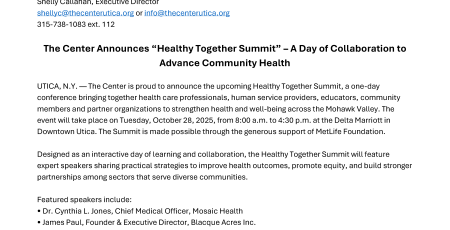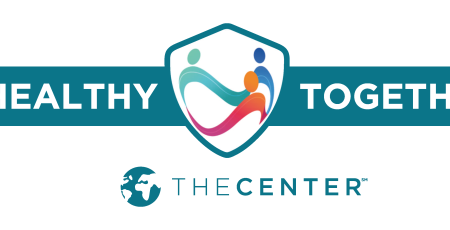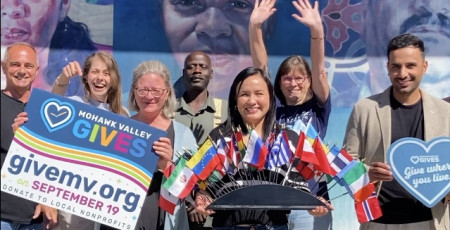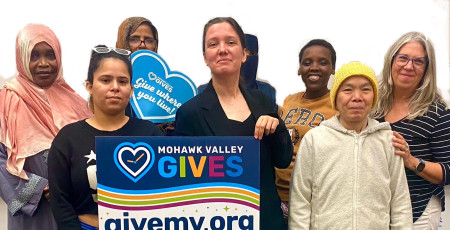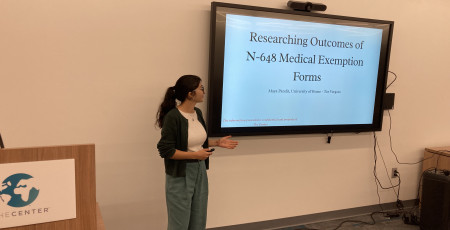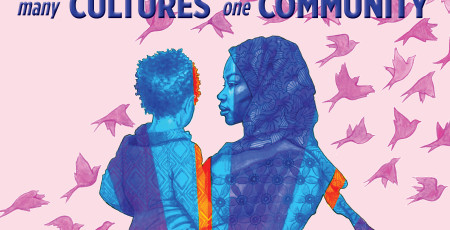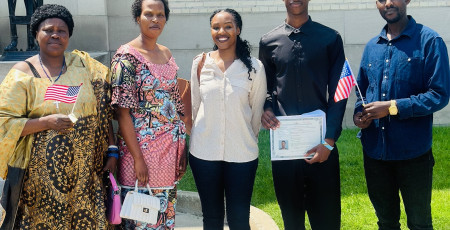Refugee Resettlement
The refugee resettlement department has transformed Utica into a community with many cultures. Dedicated staff work with community partners in healthcare, social services, and education to provide the necessary services to newly arrived refugees and their families.
Overview
Refugee resettlement programs and services assist refugees admitted through the U.S. Refugee Admissions Program. As a cooperative agency for resettlement, and an independent affiliate of LIRS, we operate under the policies, procedures, rules, and regulations of the federal U.S. Refugee Admissions Program.
We are responsible for the following activities:
- Pre-arrival arrangements
- Welcome at the airport and transportation to Utica
- Initial orientation
Program Highlights
- Since 1981, we have resettled 16,500+ people
- Collectively, staff have over 60+ years of resettlement experience
- 90 days case management
- Primary care referral as required
- School enrollment as required
- Cultural orientation
Key Contact Information
-
Dzevad Racic, Director
FAQs
-
Who is a refugee?
As defined by Article 1 of the 1951 Refugee Convention: “a person owing to a well-founded fear of being persecuted for reasons of race, religion, nationality, membership of a particular social group or political opinion, is outside the country of his nationality and is unable or, owing to such fear, is unwilling to avail himself of the protection of that country.” This definition is also in U.S. law under section 101(a)(42) of the Immigration and Nationality Act (INA).
-
Where are refugees coming from?
In the last 10 to 15 years, the largest group of refugees resettled in the United States have come from Burma (also known as Myanmar). In Utica, the Karen ethnic group from Burma, as well as other groups from Burma, are the largest number of refugees we have welcomed. We have also welcomed people from Nepal, Ukraine, DRC Congo, Sudan, Iraq, and several other countries. Visit our Populations page or view our Arrivals sheet for a full historical picture.
-
Do refugees receive money when they arrive?
Effective January 2019, a total of $1,175.00 is allocated per each refugee in a case for their client fund. No less than $950 must be spent on behalf of the refugee with the additional funds made available for flex spending or to provide up to $200 of a one-time cash disbursement. In Utica, this means that up to $1,1750.00 of federal money is spent locally on a refugee's first month’s rent, security deposit, furniture, clothing, household goods, and other items. The cost of a refugee's airfare is actually a loan that they must begin to repay after 6 months.
-
What services are available for refugees when they arrive?
Refugees are provided with referrals to health professionals and social services, assistance with registering children for school, and orientation to their local community and American norms, laws, and culture.
-
What health and security screenings do refugees receive?
Refugees undergo medical screening and treatment before they are granted permission to resettle in the United States. Upon arrival, refugees receive further health screening and receive appropriate vaccinations. The Department of Homeland Security conducts in-depth checks of each refugee prior to being admitted into the United States.
-
How are public safety services affected?
Each newly arriving refugee learns how to interact with the police and public safety services during cultural orientation, and practices traffic safety during our on-site training course. The Center also offers training for communicating effectively with public safety officers.
-
Are refugees eligible for public assistance?
Refugees are eligible for federally reimbursed public assistance for the first eight months after arrival in the United States under the Refugee Cash Assistance Program. Refugees also qualify for refugee medical assistance, which pays the costs for many initial health services.
-
Do refugees pay taxes?
Refugees pay all taxes, including property taxes. As soon as refugees find employment, taxes are deducted from their paychecks.
-
Where do refugees find work? Do you offer employment services?
The Center’s employment department provides job counseling within a month of arrival, and refugees generally begin to work within three months of arrival.
Refugees are placed in entry-level positions as they begin to work in the United States. Because many have limited English skills, they usually start with manual labor, such as factory work, washing dishes, or hotel housekeeping. -
Is there oversight of your programs?
Yes. We are monitored by the U.S. Department of State, our national affiliate Lutheran Immigration and Refugee Services (LIRS), and by New York State. Additionally, we receive visits and monitoring based on specific grants we have received.
-
Do you provide cultural orientation to new refugees?
Cultural orientation is provided to all newly arrived refugees. Information sessions include specific activities to help newcomers develop skills and knowledge about the U.S. and the Utica community. Topics include, but are not limited to:
- Role of the resettlement agency
- Refugee status
- English
- Public assistance
- U.S. laws
- Your new community
- Employment
- Health
- Budgeting and personal finance
- Housing
- Hygiene
- Safety
- Cultural adjustment
- Education
- Transportation
-
Do you help secondary migrants?
Yes, The Center assists secondary migrants. Secondary migrants are eligible for employment services, English language classes, immigration and citizenship services, and other community programs.
-
I'm interested in volunteering through The Center? How do I pursue this?
We are always in need of volunteers to assist our refugee resettlement department. If you are interested in volunteering, check out recent opportunities!
-
What if I am a new refugee and need housing?
Don’t worry! We work with local landlords to secure housing prior to refugees’ arrivals. Please contact us for more information.
-
What if I am a landlord interested in working with The Center?
We are currently in need of landlords willing to work with our program. We have an immediate need for 2-bedroom apartments. Please contact our Director of Resettlement, Dzevad Racic, at 315.738.1083 ext. 118.












